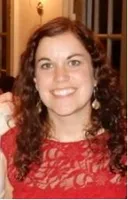Advice to me on my first day of work
By Allison Clark - January 12, 2017

olegdudko/123RF.com
I clearly remember my first day as a newly graduated physical therapist. I could not believe that I had landed a job working in a children’s hospital. I was excited and anxious to start, but walking into that large hospital in a brand new city, I had absolutely no idea what I was getting into. I’m not saying PT school did not prepare me well, but I just underestimated how much more there was to learn. From clinical skills to life skills, here are a few things that I wish I’d known as a new grad.
- Have patience with yourself. I’ve always been an overachiever, and so I quickly wanted to do everything, learn everything, volunteer for everything, and do them all perfectly. One of my later managers told me how important she feels it is for new graduates to focus on just being a great therapist. That was a few years later into my career, and I understood it more then. When I focused on being a great clinician and doing my best for patients, the other opportunities just appeared.
- Don’t be afraid to ask for help. If you don’t ask, people will assume you are fine. The sooner you ask, the better. I can be a little shy at first, but when I did start to ask, people were more than happy to help. It was nice to have a go-to mentor, but it was also important make relationships with colleagues that had different specialties, so that I could learn depth and breadth. When you do get mentoring, it’s best to get a plan with your manager and mentor, so all can be accountable to making sure the mentoring happens. I’m sure my younger self wouldn’t believe it, but eventually I became the person people came to for help and mentoring. That turned into one of my favorite parts of my career.
- Fake it till you make it. Don’t worry; I’m not talking about something that could endanger a patient. I’m talking about an appropriate level of confidence. The first week on the job, I was helping a teenager out of bed after her posterior spinal fusion. Her hovering anxious parents asked, “How many patients have you treated after this surgery?” I’m sure I had a nervous look on my face as I untangled her countless tubes and wires, thinking about that only other patient I had treated – the day before. And it didn’t help that I looked about 15, either. So I mumbled something about, “We see a lot of these…” and continued along. While I still get surprised looks when I tell people how long I’ve been a PT, I quickly realized that being confident makes parents and patients feel so much better. In medicine, there always has to be that ‘first patient,’ but with that you bring all the years of education, training, and interpersonal skills. You are more prepared than you think.
- Be ready to be exposed to every possible bodily fluid. Oh, the stories I could tell working in pediatrics…but the advice I would give would be always have an extra pair of shoes, shirt, and scrubs. The first time I saw a kid vomit, I almost passed out from the smell, but before long I was elbow deep in wound care and loving it. Embarrassingly, I have a mental list, ordered by the bodily fluids that I am most ok with being exposed. Mine starts with drool…what’s yours start with?
- Treat patients as if they were your family, just don’t bring it home. Over the last ten years, I have been exposed to traumas and illnesses and loss that no child should ever have to deal with. Initially it was hard to separate myself from that; I had to learn how to compartmentalize, but still be empathetic. The best therapists, nurses, and doctors I know are the ones with the most empathy and put in the time. The compliments I treasured most were when parents told me they felt like they were being treated by family. Families and patients feel reassurance with that, during a very scary time for them. Laugh, vent, or cry with your awesome coworkers, and then move on to that next patient waiting for you and be prepared to give them the same level of care.
- Never stop learning and challenging yourself. I graduated when smart phones were not a thing; we had to actually print out our papers, and evidenced-based practice was not as much of a buzz word. I knew I was tired of tests and studying, but the learning was just starting. My first job I learned about therapy techniques and rare diagnoses and medical abbreviations and deciphering a resident’s handwriting in a chart. I also learned how to keep learning, how to use search engines to find literature and work with a medical librarian, how to take advantage of continuing education courses and lunchtime in-services, and how to become a more well-rounded clinician through classes about leadership or educating patients. These are the skills that allow me to continue to learn and grow today.
- Be grateful for what you can learn from your patients and their families. When I think back over my ten years of practice, I think of those I’ve had the honor to work with, and how they’ve shaped the clinician I have become. The four-year-old girl who was more accepting of her paralysis than her parents. The baby who stayed for months to get his bone marrow transplant, and patted me on the back when I would put him back in the bed after therapy. The teenage boy who was dying but still was full of jokes. They boy who helped me learn how to make a better serial cast. The parents who will do anything and everything to advocate for their child. The kids who can explain their disease or disability better than you can, but doesn’t let it define him. The kids who came into rehab not doing anything, and left walking and talking. The kids who left rehab and didn´t make many changes at all. My patients and families have taught me more than I could have ever imagined about patience, determination, resilience, hope, humor, and perseverance. Oh, and how to properly use southern slang.
What would you tell your younger self on your first day of work? What, that you know now, would you not have ever believed?
Related Posts

About Allison Clark
Allison Clark is a physical therapist with over 10 years of experience, primarily in hospital-based pediatrics in Atlanta, Georgia. She is a graduate of Saint Louis University with a Master’s Degree in Physical Therapy. She is a Pediatric Clinical Specialist, a Credentialed Clinical Instructor, and a Certified Brain Injury Specialist. She recently moved to Lima, Perú and is figuring out what her next steps will be!